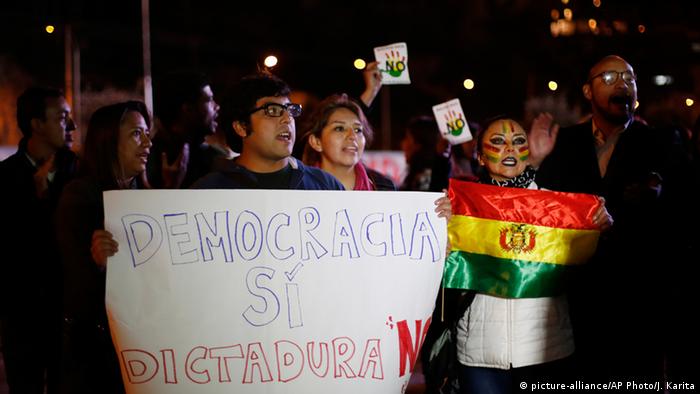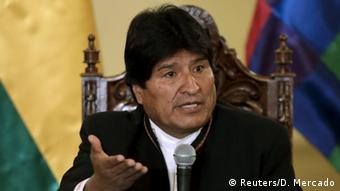BOLIVIA
It's official: Bolivians reject Morales' extension
Morales is currently on his third term and had sought a constitutional change to allow him to run for office again in 2019 and remain, if re-elected, until 2025.
The "no" outcome triggered celebrations among opposition supporters in the capital La Paz and urban centers adverse to Morales such as Potosi and Santa Cruz.
"We have recovered democracy and the right to choose, said Samuel Doria Medina, whom Morales had twice defeated in past presidential elections.
Observers from the Organization of American States (OAS) had urged all sides to accept the result.
Political scientist Carlos Cordero said Bolivia was only temporarily divided. The healing process would depend on the extent of reconciliation between Morales, his Movement for Socialism (MAS) party, and the opposition, he said.
Analyst Andres Torres said a wrangle was likely to emerge within MAS, including attempts to replace Morales.
"These results will probably cause an internal struggle to replace him," Torres said.
The Eurasia Group analytical consultancy said Bolivia's relatively strong mineral extraction economy made it "unlikely" that the country would suffer instability in the short term.
In the past, Morales had been widely credited with spreading Bolivia's resource wealth and empowering its indigenous majority. Opponents had accused him of presiding over corruption and wasteful spending.






No comments:
Post a Comment